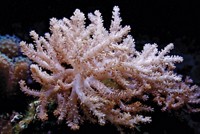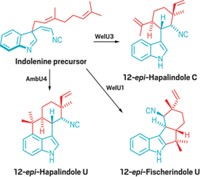Advertisement
Grab your lab coat. Let's get started
Welcome!
Welcome!
Create an account below to get 6 C&EN articles per month, receive newsletters and more - all free.
It seems this is your first time logging in online. Please enter the following information to continue.
As an ACS member you automatically get access to this site. All we need is few more details to create your reading experience.
Not you? Sign in with a different account.
Not you? Sign in with a different account.
ERROR 1
ERROR 1
ERROR 2
ERROR 2
ERROR 2
ERROR 2
ERROR 2
Password and Confirm password must match.
If you have an ACS member number, please enter it here so we can link this account to your membership. (optional)
ERROR 2
ACS values your privacy. By submitting your information, you are gaining access to C&EN and subscribing to our weekly newsletter. We use the information you provide to make your reading experience better, and we will never sell your data to third party members.
Biological Chemistry
Better Biosynthesis Building Blocks
Bacterium genome analysis turns up a novel pathway to salinosporamide anticancer agents that may have general biosynthesis applications
by Carmen Drahl
July 27, 2009
| A version of this story appeared in
Volume 87, Issue 30
A pair of biosynthetic studies may provide information that makes it easier to access analogs of the salinosporamides, a promising class of anticancer agents. Bradley S. Moore of Scripps Institution of Oceanography and the University of California, San Diego, teamed with Kevin A. Reynolds of Portland State University and colleagues to analyze the genome of Salinispora tropica, a deep-sea-dwelling bacterium that makes salinosporamides. They found that salinosporamides are biosynthesized by an unusual polyketide synthase (PKS) enzyme (Proc. Natl. Acad. Sci. USA, DOI: 10.1073/pnas.0901237106). The team then explored the enzyme's substrate specificity and learned that it can incorporate a broad range of substrates, including brominated and fluorinated compounds, into the salinosporamide skeleton (J. Am. Chem. Soc., DOI: 10.1021/ja9042824). PKS enzymes naturally make erythromycin, rapamycin, and a host of other drugs. They tend to accept a limited set of substrates, however, leaving few opportunities for further elaboration. In contrast, the salinosporamide-making PKS accepts substrates with functionalizable moieties, which might aid efforts to generate novel drug derivatives via fermentation, says Yi Tang, who studies biosynthesis at UCLA.





Join the conversation
Contact the reporter
Submit a Letter to the Editor for publication
Engage with us on Twitter